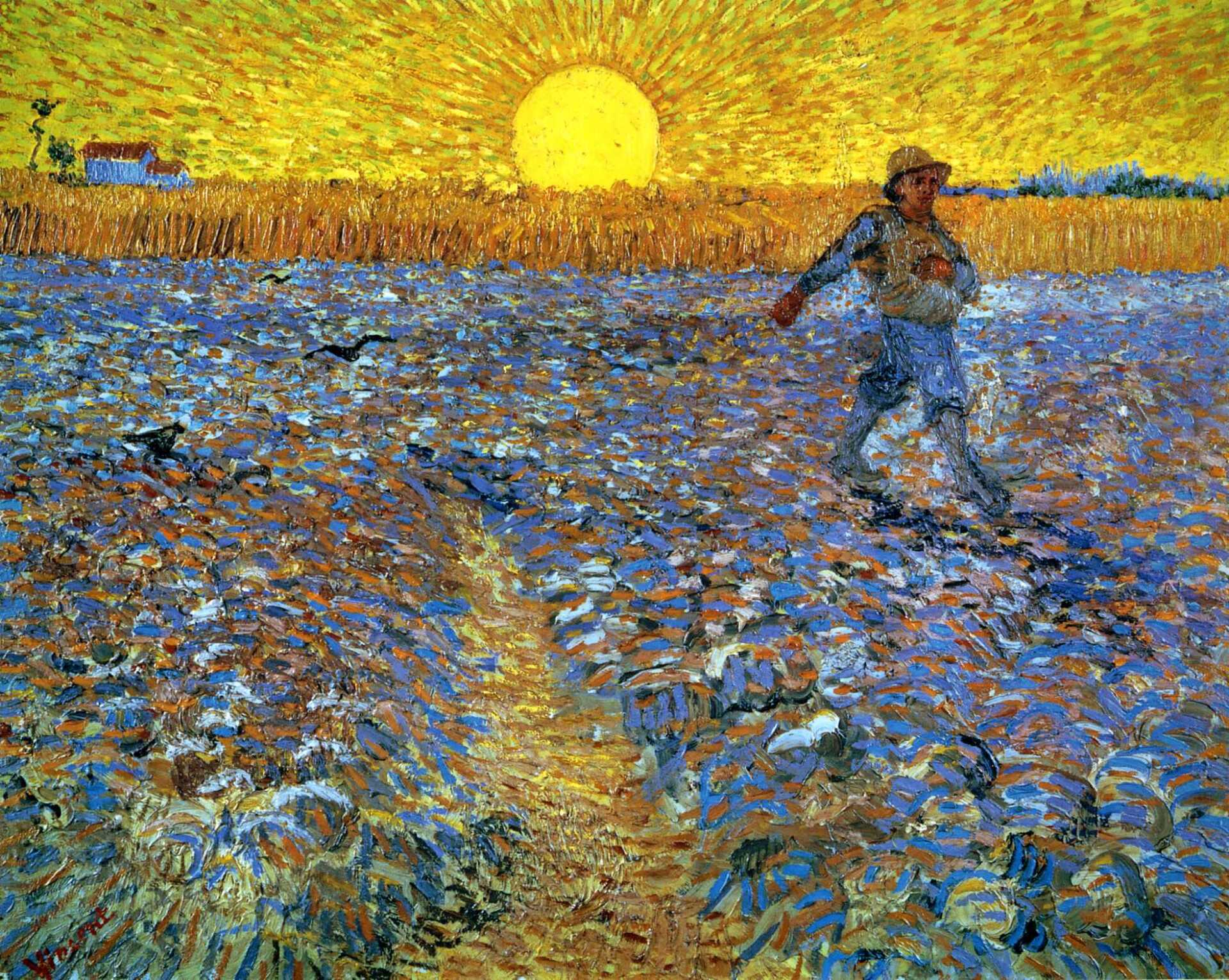Message of Abbot Paul - Sunday 13th June
Message from Fr Paul for Sunday, 13th June 2021
I don’t know about you, but I’m glad to get back to normality with this long period between the Easter liturgical cycle and the Christmas cycle, the former ending with Corpus Christi and the Sacred Heart, the latter beginning with the First Sunday in Advent. It’s simply called Ordinary Time, not a very elegant or theological title, but one that’s good enough to signify what it is, a rest from endless feasting or fasting. This year during Ordinary Time, we’re reading Mark’s Gospel on Sundays and today we’ve reached Chapter 4, (Mk 4:26-34), two mercifully short, but significant parables on the kingdom of God. In fact, Mark tells us that, “Using many parables like these, Jesus spoke the word to the crowds, so far as they were capable of understanding it. He would not speak to them except in parables, but he explained everything to his disciples when they were alone.” Now some of the parables we find in the Gospel are pretty complicated, while others are simple and usually drawn from the agricultural world in which Jesus lived. He used them to talk about himself, his true identity, and to explain the coming of the kingdom, but obviously we read them in the context of our own lives and the early Church, the very first Christian communities, did the same.
Both parables today compare the kingdom of God to a seed, the first focusing on the sowing of the seed and the miracle of growth, the second on the extraordinary difference in size between the seed and the plant that eventually grows from it. Let’s look at the first one more closely. “This is what the kingdom of God is like. A man throws seed on the land. Night and day, while he sleeps, when he is awake, the seed is sprouting and growing; how, he does not know. Of its own accord the land produces first the shoot, then the ear, then the full grain in the ear. And when the crop is ready, he loses no time: he starts to reap because the harvest has come.” Jesus seeks to answer the question his disciples are asking today as they did when he walked the earth. We tend to equate the kingdom of God with the Church as an institution and I doubt Jesus had that in mind. We could say that the kingdom is the divine life in each one of us, the seed having been sown at our baptism or in adulthood, when we first came to know God and be conscious of his love and mercy. Only God can see what is happening to the seed he has planted in each one of us and only God has the patience to wait and see it develop slowly within us. The same is true of others. We must never despair of God’s mercy or of his ability to work quietly within the souls of those who might openly deny him or have apparently turned away from him. The day will come when God will reap a rich harvest from the most unlikely of sources. We must have faith in him.
Then comes the second parable. “What can we say the kingdom of God is like? What parable can we find for it? It is like a mustard seed which at the time of its sowing in the soil is the smallest of all the seeds on earth; yet once it is sown it grows into the biggest shrub of them all and puts out big branches so that the birds of the air can shelter in its shade.” This parable focuses on the seed itself and its potential. Jesus gives the example of the mustard seed, but it strikes me that all seeds are tiny in comparison with what germinates and grows from such humble, insignificant beginnings. The kingdom of God is just the same. Jesus, Son of God incarnate, became a miniscule embryo in the womb of Mary his mother, when she said yes to the angel and accepted God’s will. What would the world be like if all men and women were to say yes to God and accept the seed of faith and eternal life in their hearts and souls? In the parables Jesus encourages us with simple examples to realise what the world would be like if we all opened our hearts and our whole life to the seed, the gift of grace. Our Father in heaven, may your kingdom come and take root in our hearts today.










